TRAILS

TRAIL MAPS
STORM is the only organization that works with San Antonio Parks & Recreation to develop and maintain the city’s single-track trails, which are enjoyed by not only mountain bikers but also trail runners and hikers. All combined, we maintain a total of 40+ miles of single-track dirt trails for our community of mountain bikers, trail runners, and hikers to enjoy.
STORM is also closely involved with Flat Rock Ranch, one of the top Texas mountain bike destinations. It is where we host our two annual races and volunteer to maintain and build new trails.
GET INVOLVED
New trails If you have an idea for a natural surface trail project, please contact us with some details and we can help create a proposal to present to the City of San Antonio Parks and Recreation Department (SAPAR) for consideration. Please complete the Contact Us form.
Maintain/build trails
STORM Trail Crew: We have the tools, training, and permission from the appropriate land managers to keep our trails enjoyable for all park users. Sign up for the next workday at one of the events listed in the Upcoming Opportunities below or contact the STORM Trail Crew to schedule a workday on your favorite trail. STORM trail workdays qualify for TMBRA PayDirt hours.
LATEST TRAIL PROJECTS
Olmos Basin Park Trail Signage Project
Status: In progress
Description: Create an up-to-date map of all trails within Olmos Basin Park and determine trail names. Perform trail maintenance and repair on trails. Install wayfinding and educational signage on Olmos Basin Park’s natural surface trails.
Next Step: Trail maintenance and sign installation; check the Golden Volunteer list of Upcoming Opportunities.
Classen-Steubing Ranch Park MTB-Only Trails
Status: Maintenance and construction of features; installation of trail signage.
Map: Trailforks | MTB Project
Description: MTB-only trails in Classen-Steubing Ranch Park.
Next Step: For dates/times of next workdays, check the Golden Volunteer list of Upcoming Opportunities.
Devil’s Den Trail Development
Status: Phase two ongoing
Description: Building an additional 3 miles of new trails that have been designed and approved. (Trailforks | MTB Project)
Next Step: Trail corridor clearing and trail building. For dates/times of next workdays, check the Golden Volunteer list of Upcoming Opportunities.
O.P. Schnabel Park “Perimeter Loop” Trail Signage Project
Status: In progress
Map: Trailforks | MTB Project
Description: Install signage on Perimeter Loop trail in O.P. Schnabel Park
Next Step: Obtain approval for proposed signage placement. Schedule workdays to install signs.
Leon Creek Greenway “Don Sleeper Loop” Trail Signage Project
Status: In progress
Map: Trailforks | MTB Project
Description: Install signage on Don Sleeper Loop trail on Leon Creek Greenway (LCG) south of OP Schnabel Park and north of Bandera Rd.
Next Step: Obtain approval for proposed signage placement. Schedule workdays to install signs. Don Sleeper Loop may need to be rerouted in several areas due to erosion.
JOIN STORM TODAY
30 years as the leading mountain bike and trail advocacy organization for San Antonio and surrounding areas







